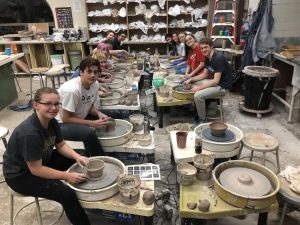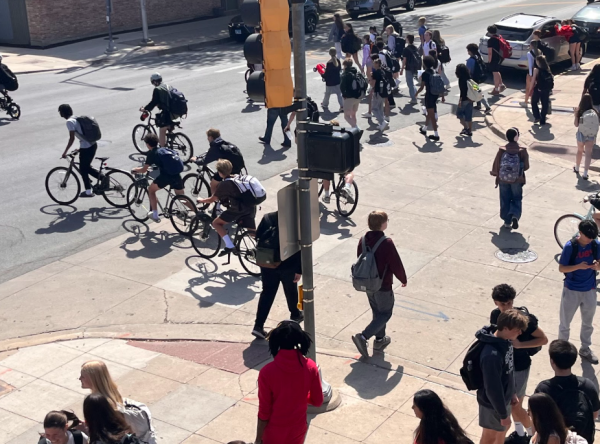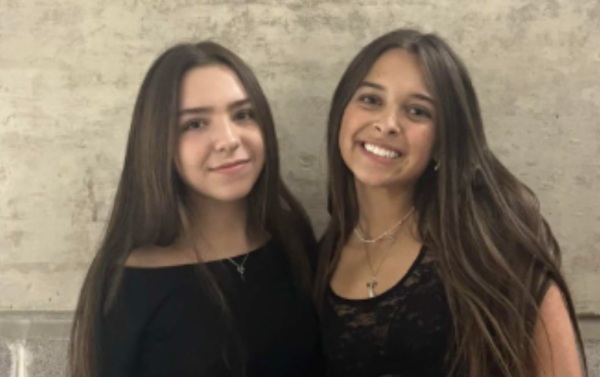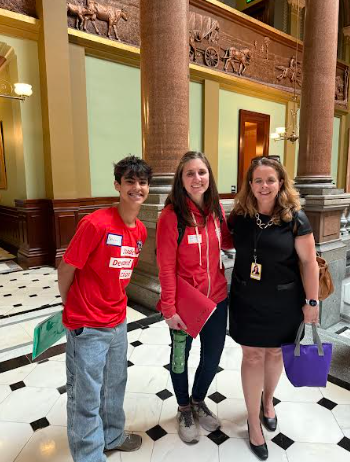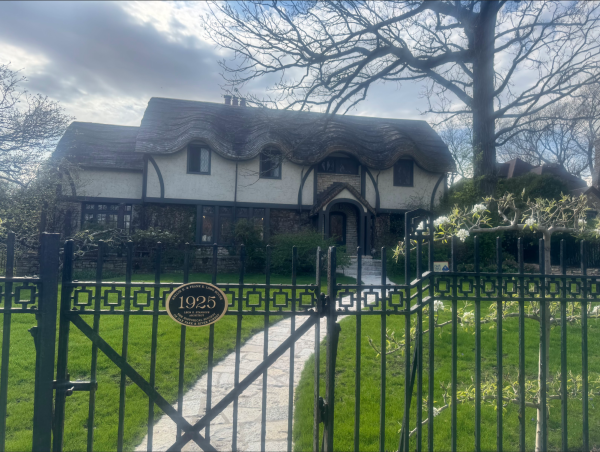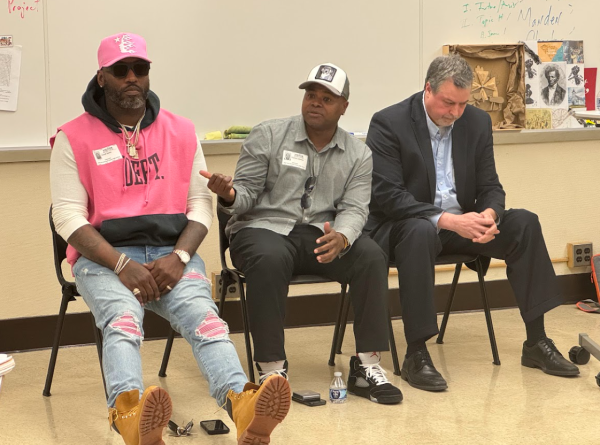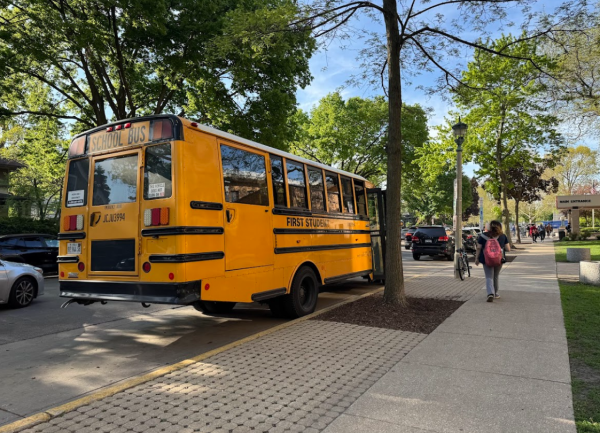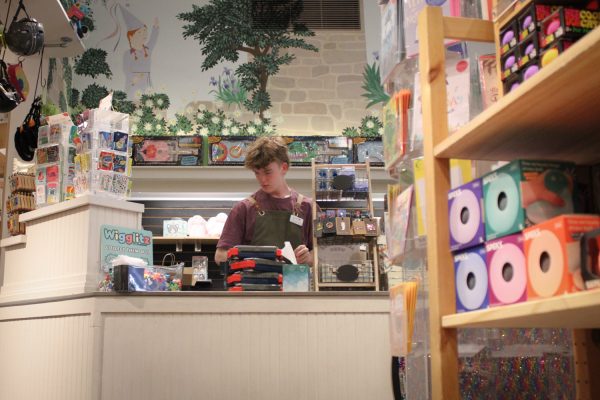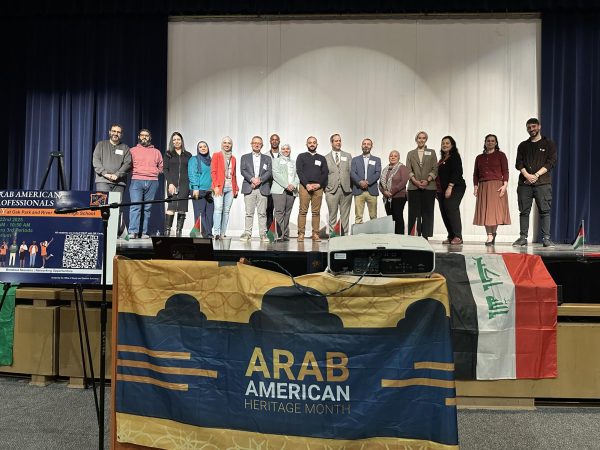Empty Bowls succeeds in supporting community
Empty Bowls places a strong emphasis on bringing the community together for a good cause. However, the COVID-19 pandemic has introduced a new definition of community.
The nationwide fundraiser, introduced to OPRF in the early 2000s, is an event attended by over 1,000 community members, and over 1,000 handmade bowls of locally donated soup are sold. Proceeds to the OPRF chapter go to Beyond Hunger (formerly the OPRF Food Pantry), Housing Forward, and the Global Alliance for Africa, local and international organizations fighting world hunger.
The OPRF chapter of Empty Bowls is largely student-run. Students utilize OPRF’s art studio to throw their own bowls; ask local restaurants for donations; and volunteer at the event itself. Volunteering is open to the entire OPRF student body and community.
Volunteers can serve soup; manage T-shirt sales; help clean bowls; or welcome people to the event. “It’s tradition for us to gather as a group to remember the reasons why we hold the event before we welcome the guests,” said OPRF senior Luca Andersen, an officer of the OPRF Wheel Throwing Club and ambassador for Empty Bowls.
This year, however, the pandemic has completely changed every aspect of the fundraiser. Due to COVID-19 protocols, the event had to be switched from in-person to online, where only about 500 bowls were sold as opposed to the approximately 1,000 sold in a normal school year’s event.
Although students were unable to throw bowls at OPRF, local art studios throughout the Oak Park area, including Terra Incognito on Chicago Avenue and ViaClay on Marion Street, volunteered to help produce bowls for the fundraiser. ViaClay even held several “bowl-a-thons” where students could make bowls in-person. “They were really awesome,” said Bridget Doherty, sponsor of the OPRF chapter. “They put in safety measures, (and) they helped us process the bowls.”
Doherty and her volunteers saw it as a bad choice to ask restaurants for donations as they had in previous years. “We knew right away that we couldn’t have local restaurants donate soup, nor did we want to ask (them),” she said. “We knew (there have) been so many people hard-hit by this pandemic, (especially) restaurants.” Whenever a bowl was ordered off of the new Empty Bowls website (https://oprfemptybowls.weebly.com/), a recipe was sent along with it for customers to make their own soup. A complete recipe book was also posted on the website. Every recipe in the recipe book and with each bowl sold was created by OPRF faculty and staff members.
“We knew immediately that we could sell bowls and be creative in making something that could help foster a sense of community,” Doherty said.
The Empty Bowls website sold out its first batch of bowls in its first weekend live. As a result of the success of the improvised event, Doherty hopes to be able to implement the website into future events once the pandemic is over to expand access to fundraising.
“It (the website) was really interesting this year – we got to see which color people mostly chose and what size people mostly chose,” Doherty said. “This definitely opens the door for things we can do in the future … we’ve always done Empty Bowls in a similar way year to year, so doing this website was a whole new thing.”
However, student ambassadors of the fundraiser disagree, drawing on the strong sense of community an in-person fundraiser provides.
“It’s really a community event,” said senior ambassador Eleanor White. “I don’t think we would ever do (the website) again if we didn’t have to.”


